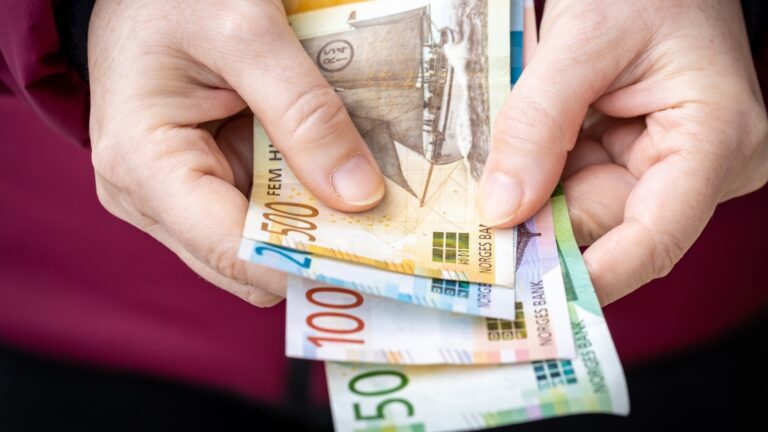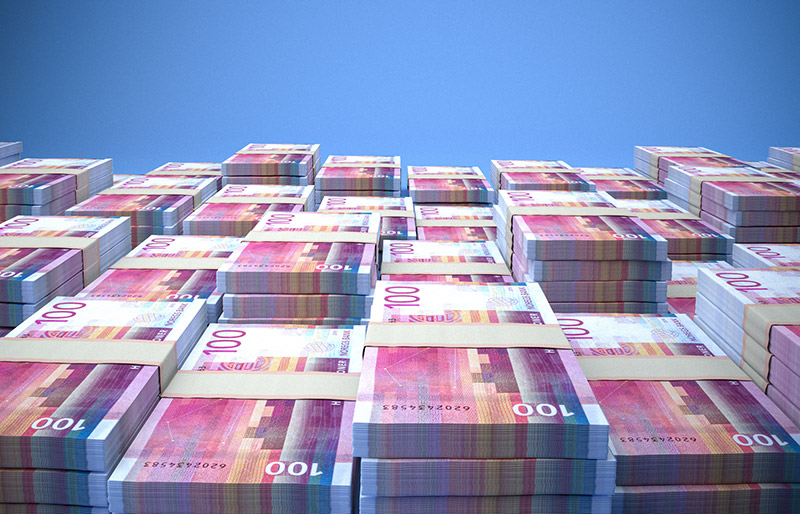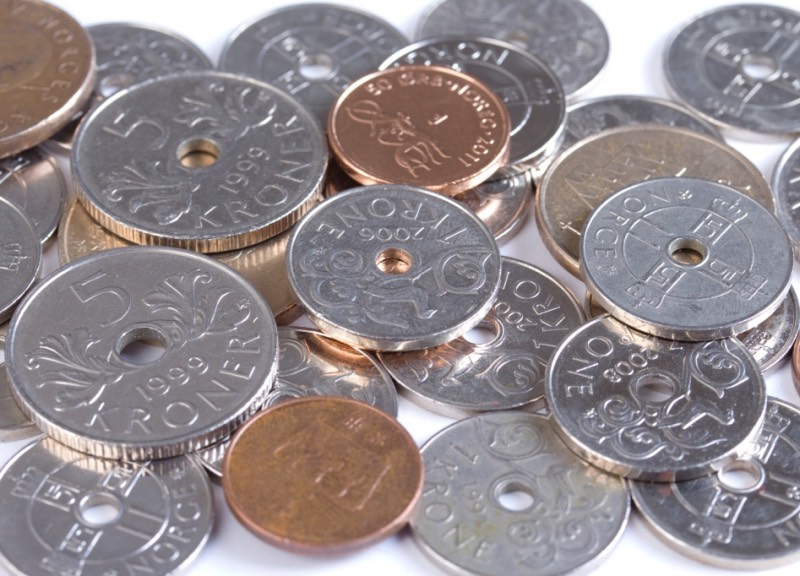If you live in Norway, your global net worth is subject to wealth tax. But how does it work, and what exemptions apply? Here’s everything you need to know about Norway’s wealth tax in 2025.
The recent controversy surrounding a small municipality in northern Norway that offered residents a way to save on wealth tax has brought this lesser-known tax into the spotlight.

While wealth tax has long been debated among economists and politicians, this story has captured wider public attention, raising questions about how the tax works and who it affects.
Later, we’ll explore the details of Norway’s so-called “tax haven” in the north. But first, let’s break down everything you need to know about wealth tax in Norway.
A Tax on Global Assets
Norway imposes a variety of taxes to fund public services such as healthcare, education, roads, and pensions.
Some taxes, like those on electric vehicles, are designed to influence consumer behaviour. Others, like income tax and social security contributions, are deducted directly from salaries for employees or paid in advance by the self-employed.
However, unlike many other countries, Norway also taxes personal wealth. This means that in addition to income tax, individuals with significant assets are required to pay tax on their net worth.
The wealth tax is particularly relevant for business owners and high-net-worth individuals who may have substantial assets but draw little or no salary, thereby reducing their income tax burden. Wealth tax ensures that even those who don’t rely on a traditional salary still contribute to society.

Crucially, Norway’s wealth tax applies to an individual’s global assets, regardless of where they are held.
The only way to avoid paying wealth tax on significant assets is to leave Norway and become a tax resident elsewhere—a decision that has led some wealthy Norwegians to relocate in search of lower taxes.
By understanding how wealth tax works, who it affects, and what options are available for minimising it, you can make informed financial decisions—whether you’re a long-term resident or considering a move to Norway.
How Much is Norway’s Wealth Tax?
Norway's wealth tax is easy to understand, although it does change from time to time. The following numbers apply to the 2025 tax year.
The total value of a person's worldwide net wealth above NOK 1.76 million (approx $170,000) is taxed at 1%. This threshold has been increased from NOK 1.7 million in 2023.
To be clear, that means that if someone owns net assets worth NOK 2 million, they will pay 1% tax on NOK 300,000, not the full NOK 2 million.
Of the wealth tax take, 0.475% goes to the state, with the remaining 0.525% going to the municipality in which the individual lives. This share has changed in recent years in favour of the state. In 2024, just 0.3% went to the state, with 0.7% going to the municipality.

When net wealth exceeds NOK 20.7 million, the marginal tax rate increases by 0.1%. Any additional revenue from this extra marginal rate goes to the state.
How is Net Wealth Defined?
Net wealth is defined on the Norwegian tax return by the total value of assets minus total debt. So if you own a home worth NOK 5 million but are still paying off a mortgage, you won't be charged wealth tax on the full value of the house.
But housing in itself is a special case. While housing wealth is included in the wealth tax calculations, there are favourable rules on the valuation of your primary dwelling.
Read more: Cost of Living in Norway
For wealth tax purposes, your primary dwelling is valued at 25% of its estimated market value. This means most homeowners don't a lot of wealth tax simply through owning a home in which they live.
The thresholds given above are for single taxpayers. For spouses or registered partners who are assessed jointly for tax purposes, the thresholds for wealth tax are twice the amounts given above.
Norway Wealth Tax Example
Confused? I’m not surprised! Let’s take a look at an example to help explain how wealth tax in Norway works.
Say you own a house worth NOK 5 million, with additional assets worth NOK 1 million. Your house is paid off in full, and you have no other debt. This would mean a net wealth of NOK 6 million.
However, the property value is calculated at NOK 1.25 million for the purposes of the wealth tax. This assumes it's your primary dwelling and you don't own any other property, including overseas.

In this case, you net wealth would be NOK 2.25 million. This would result in a wealth tax bill of just NOK 4,900.
The Story of Northern Norway's ‘Tax Haven’
The remote municipality Bø i Vesterålen has hit the headlines recently, with some Norwegian media calling it the ‘Monaco of Norway'. What did this tiny municipality home to a handful of villages with a population of little more than 2,500 do to earn this nickname?
Simply put, Bø's conservative mayor decided to decrease the amount of wealth tax it would charge its residents. The thought was that this would attract high net worth individuals, which would easily offset the loss in tax revenue.
The reality wasn’t that easy. While several wealthy Norwegians have indeed moved, Norway's little-known tax equalization laws mean that Bø did not earn as much tax revenue as they had anticipated.
Elsewhere in Northern Norway, residents of Finnmark and the rural parts of Troms county receive an extra deduction on their personal tax returns. But those residents still have to pay wealth tax at the regular rate.
Why is the Wealth Tax Controversial in Norway?
Norway’s wealth tax has been a hot topic in recent years, especially after several wealthy individuals, including Kjell Inge Røkke and Bjørn Dæhlie, relocated to countries with lower tax rates.
Critics argue that the tax is unfair because it applies to unrealized wealth, such as stocks that haven’t been sold. Others claim it discourages investment in Norwegian businesses, as it makes investing in property—taxed more favourably—a more attractive option.
The way different assets are valued for taxation also raises concerns, with some items, like artwork under NOK 1 million, excluded from the calculation.
The wealth tax is a key political issue, with parties on the right advocating for cuts or its removal, while those on the left defend it as a tool for wealth redistribution.
How to Reduce Wealth Tax in Norway
For those affected, there are ways to legally minimise wealth tax liability:
Taking on loans: Borrowing against assets, such as property, can reduce taxable wealth since real estate is typically taxed at only 25-30% of its market value.
Pension savings: Contributions to an Individual Pension Savings Account (IPS) are exempt from wealth tax.
Strategic investments: Certain assets, such as primary homes (taxed at 25% of market value), holiday homes (30%), and mutual funds (75%), are taxed at lower rates. Artwork under NOK 1 million is not included in net wealth calculations.
The debate around the wealth tax is unlikely to go away anytime soon, as Norway continues to balance taxation, investment, and economic competitiveness.
What do you think of Norway’s wealth tax? Is it a fairer way to redistribute income, or a government tax grab? Let us know in the comments.



That Bø’s mayor sounds like a pretty awesome guy.
Bad idea.
Everyone is already paying hidden tax due to inflation debasing currencies, and in most cases anyone who has successfully worked hard to provide for themselves and their family will be paying some or all of income taxes, taxes on capital gains, taxes on energy, transport, goods, and services, and then death taxes.
!
Do pension savings count as wealth for the purpose of the wealth tax?
I’d support such a thing for “wealth”. Aimed at the obscene/billionaires to ensure they can’t avoid it with offshore investments,paying half a billion for water colors and sitting on it for that purpose, etc.. It shouldn’t even be considered for anyone under $10 million. I don’t think 99% of people would ever see a sting in that. It’s essentially property tax on all of your property and it’s a good idea. I have no delusions of well one day I’ll be a billionaire and I’ll want to buy the Mona Lisa w/o feeling like I’m renting it.
So, a wealthy Norwegian can pay over 100% tax on his annual income. Be interesting to see the U-Haul stats.
Do a lot of people (common everyday people, i e teachers, store clerks, delivery people, construction workers, etc. )have trouble with daily bills because of the taxation?